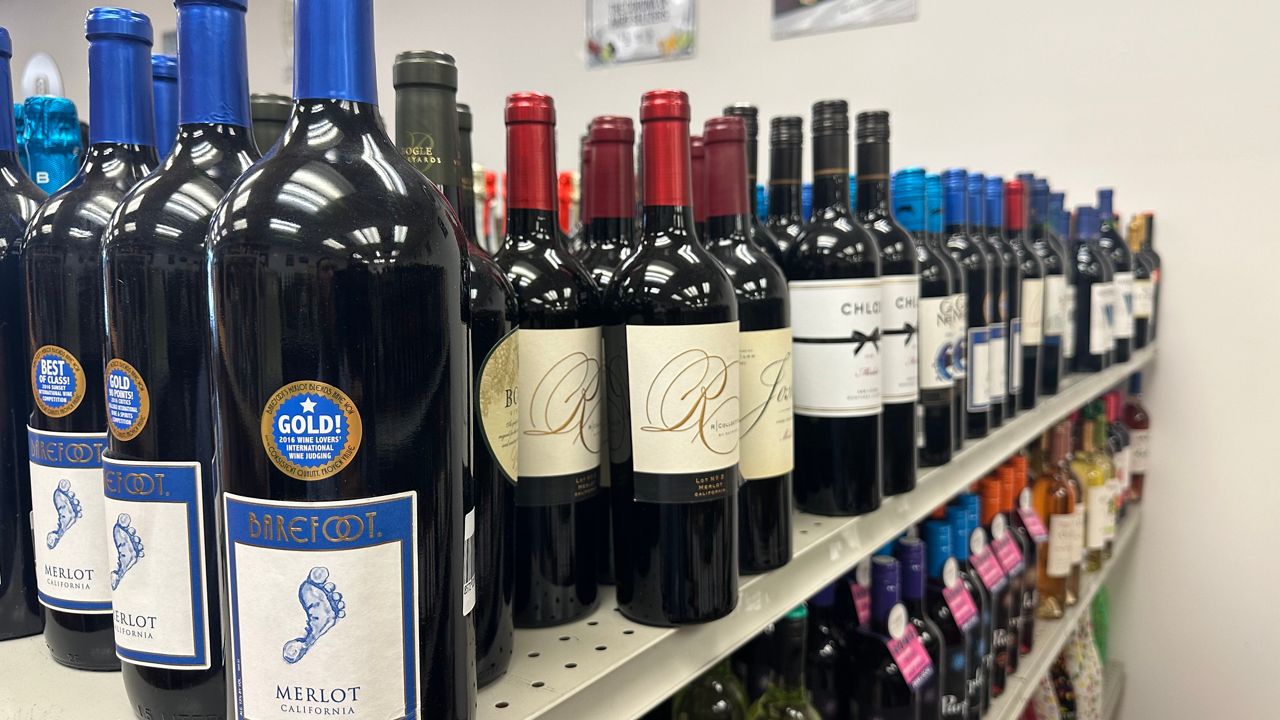Gov. Kathy Hochul did not include wine licenses for grocery stores in her budget proposal as the idea gains momentum with lawmakers pushing for the change to be included in the final spending plan.
New York is one of 10 states that does not permit the sale of wine in grocery stores — a restriction that dates back to Prohibition. A 2023 Siena College poll shows 75% of New York voters strongly support allowing grocery stores to sell wine up from 58% in 2010.
A few bills have been reintroduced to create licenses for supermarkets to sell wine, beer and cider products.
One proposal, sponsored by Senate Finance Committee chair Liz Krueger, requires grocers to pay an annual fee based on its wine sales, but New York wines would be exempt from the total to boost the sale of products made in the state.
Only full-service grocery stores could apply.
“This is something that is very popular, will boost New York agriculture and business, and will be just a little improvement to make New Yorkers’ lives more convenient and more affordable," Krueger said Friday in a statement. "It’s only the big distributors and some liquor stores who oppose this. The vast majority of New Yorkers – 76% in a recent poll – support it. Sure, this isn’t the most critically important issue we’re dealing with this year, but even on the smaller things, government should be able to be responsive to what people clearly want.”
Grocery stores and leaders with the Business Council of New York State are leading the effort to get more lawmakers on board with the proposal and argue it would boost state revenue.
Business Council Executive Vice President Paul Zuber said the sale of beer and wine in sueprmarkets will increase competition and make products cheaper.
"Our point as a coalition is, if 40 other states are doing this, the public wants it, it deals with affordability, there's revenue associated with it, let's sit down and have a conversation about wine in grocery stores," Zuber said. "...There has to be reform here. There has to be change. Consumers want it. It's about time that we start listening to consumers and start listening to voters because I think that's what has gotten a lot of consumers, a lot of voters, agitated is they want government to start listening to them and they want affordability."
But the proposal faces stiff pushback from alcohol distributors and small liquor store owners who argue wine sales in grocery stores would put them out of business over large corporations.
Independent retailers in the state fear the change would lead to more empty storefronts from competition with supermarkets, and other states that allow grocers to sell wine and beer have fewer liquor stores.
Michael Correra, executive director of the Metropolitan Package Store Association, has owned Michael Towne Wines & Spirits for 30 years.
"This would be the equivalent of a nuclear bomb going off in our industry in New York state," Correra said. "it would be catastrophic."
He pointed to recent news reports that hundreds of independent liquor stores in Colorado have been forced to close after the state legalized wine in grocery stores in 2023.
Other critics argue selling wine and beer at the supermarket would increase underage drinking and make it easier for teenagers to get alcohol.
"I think this is a controlled product," Correra said. "We do a great job of selling it, merchandising it and protecting it and handling it for the public. And there's not a need anywhere in New York state where there isn't a wine available or products available or a need for a liquor store. There's plenty of liquor stores."
This proposal will likely have some bipartisan support, but several Republican lawmakers share concerns about the impact to small liquor stores and wineries. Senate Republicans have yet to discuss the issue together as a conference.
New York lawmakers almost changed its Alcohol and Beverage Control law to sell wine in supermarkets 15 years ago, but strong pushback from alcohol distributors and small business owners killed the proposal, leaving the current law intact.
But many liquor retailers are confident they can kill the proposal again.


